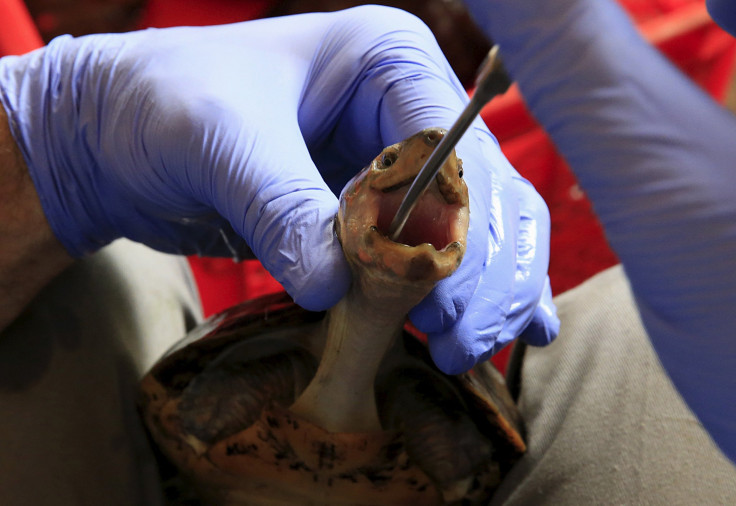Illegal Wildlife Trade On Facebook Booming In The Philippines, Watchdog Finds

A new study has found that Facebook is rapidly emerging as the top site for trafficking of reptiles in the Philippines. The study, conducted by non-governmental wildlife trade monitoring network TRAFFIC, stated thousands of endangered crocodiles, turtles, and snakes are being illegally traded through at least 90 active Facebook groups.
The illegal trade for live reptiles has seen a significant rise in the last 30 years. TRAFFIC conducted a three-month survey from June-August 2016 to shed light on the rampant illegally wildlife trafficking, according to the study. It found that “2,245 unique live reptile advertisements representing 115 taxa and a minimum of 5,082 individuals were posted by 1,046 traders,” in the groups, and on an average 748 advertisements were documented a month.
There were 359,328 members in these Facebook groups in June, and this membership saw an 11 percent increase by the end of August, the same year. Most transactions were carried out through the Facebook messenger, the study added.
Serene Chng, the programme officer for the watchdog in Southeast Asia, said: “In only selected groups and in under a hundred days, we found thousands of individual reptiles in trade. This magnitude of commerce in live wild animals online is just mind-boggling … This small snapshot reinforces how social media has taken over as the new epicenter of wildlife trade.”
The trade of almost half the species mentioned in these Facebook pages is prohibited as they are protected by the Convention on International Trade in Endangered Species of Wild Fauna and Flora (CITES), and the Philippine Wildlife Act.
Some of the animals offered for sale included the Philippine crocodile and the Philippine forest turtle — both of which are critically endangered species. Non-native species included radiated tortoise, Bengal monitor lizard, black spotted turtle, and Dumeril’s boa. According to the CITES data, there was no record that these animals were legally imported.
The study stated that most traders used Facebook for carrying out the illegal trade because of its popularity and insufficient internal monitoring enforcement. The buyers and sellers used internet platforms to ensure privacy.
As part of a transaction, the study found, a seller had used an unnamed internet-based ride-sharing service to deliver the animal to the buyer.
In response to the study, Facebook’s PR firm released a statement saying the website does not tolerate illegal trading, Agence France-Presse reported. It also added that Facebook was willing to work with TRAFFIC to stop such trading activities.
"Facebook does not allow the sale and trade of endangered animals and we will not hesitate to remove any material that violates our community standards when it is reported to us," it said.
Elizabeth John, the watchdog’s regional spokeswoman, said that Facebook was "seeking additional information in order to take action" and that the watchdog was helping it liaise with Philippine authorities.
TRAFFIC said that a number of raids were carried out on suspected illegal traders in Manila, Philippines, with the help of findings from the study. The country’s customs officials also intercepted illegal wildlife packages sent to nations such as China, Sweden, and the United States.
© Copyright IBTimes 2024. All rights reserved.











